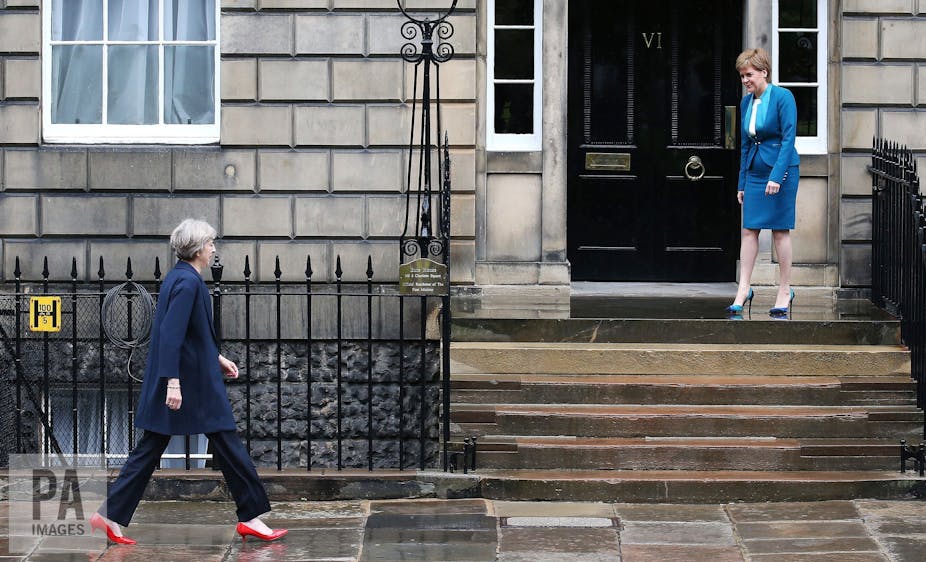When the UK government published its white paper outlining its plan for Brexit, it dedicated a chapter to “strengthening the union”. This was an important reminder of the significant implications leaving the EU holds for the UK’s current devolved system of government.
Brexit will not just affect the UK’s current devolution arrangements, it will also potentially impact on the nation’s external affairs in areas such as energy, the environment and international trade.
So when the government vows to “deliver an outcome that works for the whole of the UK” after Brexit, it needs to consider the specific interests of Scotland, Wales and Northern Ireland. Each voted differently in the referendum and as the UK seeks to leave the EU, each will have its own interests. Brexit is truly a two-union issue.
In the years since it joined the European Economic Community in 1973, the UK has embarked on a project to devolve political power to Scotland, Wales and Northern Ireland. Various legislative powers have moved from Westminster to the devolved governments and parliaments, with different arrangements for each.
Many of these competences, such as agriculture and environmental policy, were devolved in part because they are predominantly legislated and enforced at the EU level anyway. With the UK set to leave the EU it is not clear what will happen when these competences are repatriated from the EU and to what extent they will be given directly to the devolved administrations.
The UK government also needs to undertake a review of which EU competences are to be returned to the devolved administrations under current constitutional arrangements. The UK’s current devolution settlement was reached after the UK joined the EU in 1973 so, when powers are repatriated from the EU to the UK, there needs to be a decision on which powers will then be devolved.
Working together
Even before any of this happens, the UK will need a joint position on what each constituent part wants from Brexit – which has so far proved a daunting task.
A joint ministerial committee has been established as a forum for the various UK leaders to talk about Brexit. But this is an inadequate mechanism. As well as deciding how to negotiate Brexit, this group also needs to represent UK-wide interests afterwards, as the future relationship with Europe takes shape.
Then there is the matter of external affairs. In the past few decades, the division between domestic and foreign policy has become increasingly blurred. While foreign policy remains reserved for the UK government, some policy areas with external dimensions have been devolved to Scotland, Wales and Northern Ireland. These include agriculture, fisheries and the environment – areas of significance for the UK in developing a post-EU external trade and commercial policy.

Prior to the referendum, the devolved administrations had already sought to establish – to differing degrees – their own profiles in external affairs. Scotland is already well advanced in this respect. It has a relatively strong presence in Brussels and elsewhere to represent its international interests and preferences on matters such as the single market, free movement of people and fishing.
The outcome of the referendum has given these efforts renewed impetus. This could mean that the UK will show a more multifaceted profile to the EU, its member states and third countries after Brexit.
It would be sensible for the devolved administrations to develop their existing arrangements for representing their interests directly to the EU and member states after Brexit. Wales currently has a less extensive set of arrangements in place than Scotland and Northern Ireland’s system of government poses particular challenges to developing a coherent external relations, given the delicate balance of power between the two ruling parties.
Devolution ensures that the landscape of the UK’s external affairs looks set to be more variegated and complicated after it exits the EU.

